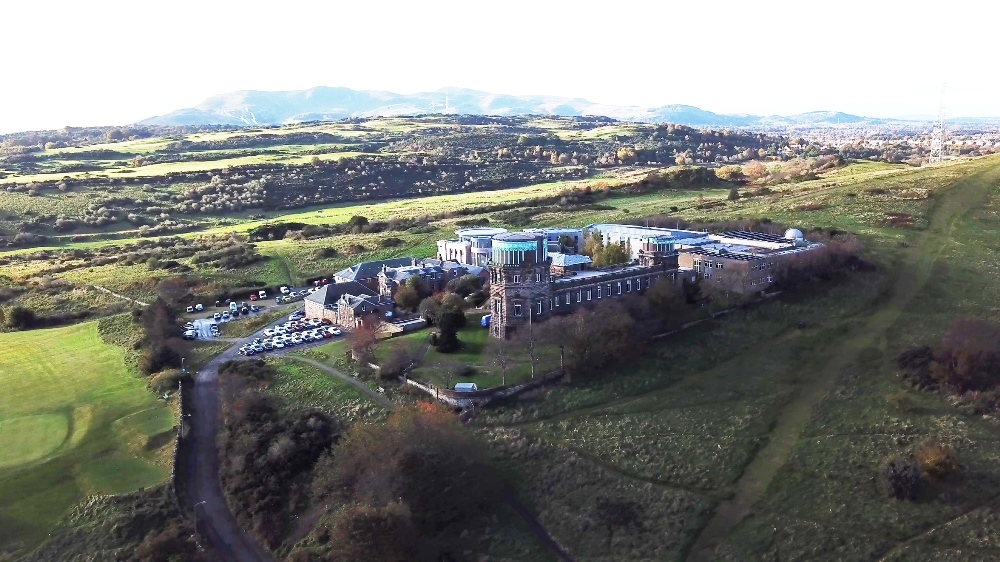UK space sector gets £1m to support international innovation

Image courtesy UK Space Agency
Projects to remotely probe ice on Mars to help explorers find life below the surface, a system to warn of impacts of flood risks to infrastructure based on research in India and a scheme to design UK imaging technology for a space telescope are among the new international initiatives to receive backing from the UK Space Agency’s National Space Innovation Programme (NSIP).
The funding will see UK companies and organisations working with partners such as NASA, and space agencies from Canada, Japan and Italy. NSIP is the first fund dedicated to supporting the UK space sector’s innovation through collaborations with international partners designed to contribute to UK science, security and prosperity.
Dr Graham Turnock, Chief Executive of the UK Space Agency, said: “Space technologies are part of almost every aspect of our daily lives. With rapid technological innovation, space offers a broad and growing range of opportunities to support economic activity and protect the environment.
“These projects champion the best of British innovation while strengthening our partnerships around the world.”
The International element of NSIP aims to increase UK exporting potential, strengthen research partnerships around the world that complement our existing activities through the European Space Agency, and develop key space technologies and capabilities important to the UK’s security interests.
The UK space sector is a major economic success story, growing by over 60% since 2010. The UK remains a leading member of the European Space Agency, which is independent of the EU. ESA membership allows the UK to cooperate in world-leading science on a global scale, enabling UK scientists and researchers access to a range of international R&D programmes.
The new funding for these international projects follows over £7 million awarded to 21 UK organisations in December 2020. These were the first projects to receive funding from the national element of NSIP.
The five projects are:
Mars Ice Mapper SAR Antenna Feasibility Study, Oxford Space Systems, Oxford, £160,000
Consortium partner:
Canadian Space Agency
Oxford Space Systems (OSS) will conduct a feasibility study into a large deployable antenna for a potential radar-mapping mission led by NASA, the Canadian Space Agency, the Italian Space Agency and the Japanese Space Agency.
The mission, called International Mars Ice Mapper, proposes to map shallow sub-surface ice on the Martian landscape and remotely sense up to 10 metres below it, providing essential data on both available water for explorers and places of interest in the search for life.
The OSS team will analyse and study the early-stage design necessary to implement a 6m dish to be the front end of the envisioned L-band Synthetic Aperture Radar (SAR) for the mission, taking advantage of Canadian experience of the Radarsat series of satellites.
InRange Launch Vehicle Telemetry Service, Inmarsat, London, £258,000
Consortium partners:
Mitsubishi Heavy Industries (MHI), Japan; Safran Data Systems, France; Haigh-Farr Inc., USA.
Inmarsat will use its existing global L-band geostationary satellite communications network to develop an in-orbit data relay solution. The concept, named “InRange”, will enable launch vehicles to reduce launch providers’ dependency on traditional, expensive ground-based technology.
This innovative new capability will provide a UK solution for cost effective, flexible launch range service to launch providers and sites. Inmarsat has collaborated with partners in Japan, France and the US to develop the L-band transmitter and antenna configuration for the launch vehicle.
The UN Office for Outer Space Affairs (UNOOSA), Long Term Sustainability Guidelines: Promoting Space Sustainability, £85,000
UNOOSA will support international efforts to promote space sustainability by identifying examples of the sustainable use of outer space through a series of events and outreach efforts. This project will also inform future UNOOSA capacity-building efforts to promote the future sustainability of outer space. It will encourage all actors to implement the UN’s LTS Guidelines for the Long-Term Sustainability of Outer Space Activities to the fullest extent possible.
Impact-based Flood Forecasting for India, HR Wallingford, Oxfordshire, £265,000
Consortium partners:
Sayers and Partners (SPL), D-Orbit UK, Dr. Steven Reece – The Information Group, Oxford University
HR Wallingford will build upon UK Met Office-funded research carried out in India, which uses earth-observation (EO) data to estimate risks to building and agriculture from weather related hazards. The project aims to provide an impact-based flood forecasting framework. The system will be capable of being linked to any existing or future flood-flow forecasting system, to forecast flood risk in terms of expected loss of life, injuries to people, building collapse, infrastructure disruption or economic damage. This phase will look at the 2020 flooding of the Koshi River, in the state of Bihar, as a case study.
HR Wallingford will be collaborating with the Central Water and Power Research Station (CWPRS), the National Institute of Hydrology (NIH), Roorkee and the National Centre of Coastal Research (NCCR), India.
Enhancing UK EMCCD camera technology for space applications: from UK involvement in the Nancy Grace Roman Space Telescope to future global projects, The Open University, £279,000
Consortium partners:
NASA JPL, U R Rao Satellite Centre (ISRO), Teledyne e2v (Te2v), XCAM Ltd., Grey Consultants.
Open University will build upon its Centre for Electronic Imaging’s (CEI) previous involvement in the design of bespoke sensors for the Nancy Grace Roman Space Telescope by working with NASA’s JPL to further develop the new UK imaging technology for the mission. The aim is to demonstrate the potential for enhanced performance with this new UK technology as a flagship for space applications. The team will also work with the U R Rao Satellite Centre of the Indian Space Research Organisation (ISRO) to explore uses of the new technology for their DISHA satellite mission. This project will demonstrate the new sensor technology in flight-like conditions alongside running new analysis and optimisation techniques.














